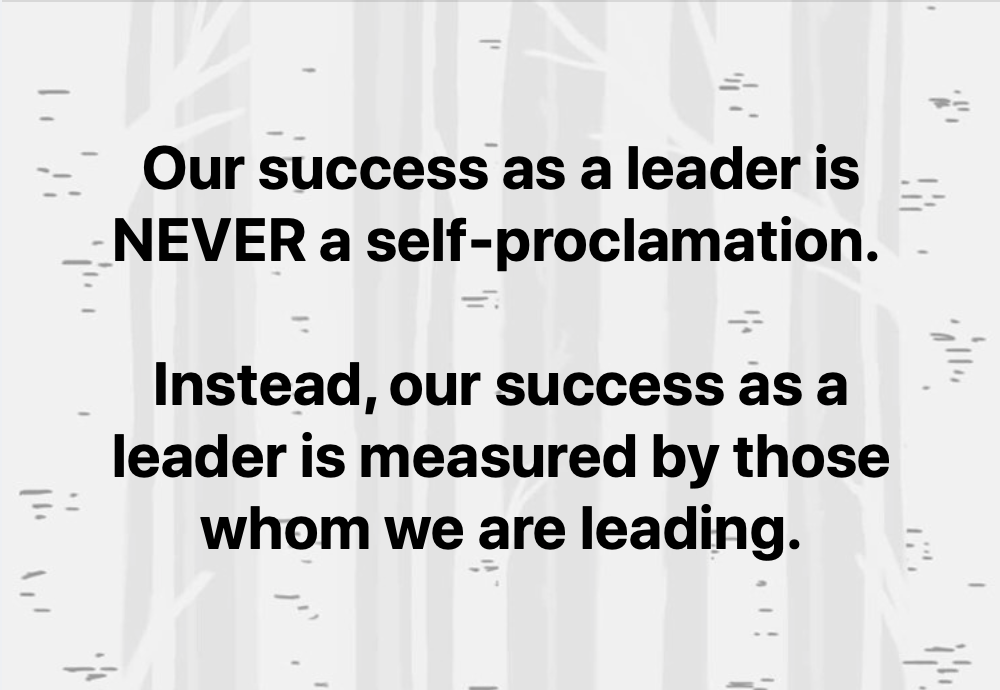
04 Apr 7 Things We Need MOST from Our Leaders in Times of Uncertainty … (and 5 Things We Don’t)
Stories about inspiring leaders:
Heather Cox Richardson, Letters from an American, 4/5/2020 (subscribe here: heathercoxrichardson.substack.com)
“Pope Francis spoke today in a nearly empty St. Peters Basilica in honor of Palm Sunday: ‘Dear friends, look at the real heroes who come to light in these days: they are not famous, rich and successful people; rather, they are those who are giving themselves in order to serve others.’
“We are surrounded by ordinary people who are giving themselves to serve others: bus drivers, delivery people, airline workers, grocery store clerks, post office workers, line cooks, police officers, food producers, social workers, janitorial staff, tradespeople, teachers, child care providers, farm workers, utility maintenance professionals, health care workers, servicemen and women, nurses, doctors. Their dedication deserves our profound thanks. It also proves that the great strength of America remains where it has always been: in ordinary Americans, setting their shoulders to accomplish the task before them.”

I have to believe that the vast majority of the world is experiencing fear, uncertainty, and doubt (FUD) at previously unseen levels – human nature seems to prefer predictability and certainty, and both are in short supply right now for most of us (certainly some across the world are quite used to a world of uncertainty due to wars, terrorism, abuse, trafficking, etc. – I don’t want to minimize anyone’s individual situation).
However, the plans most of us have so carefully crafted for our futures are pretty much useless right now, and it’s as if mother nature has pulled the rug out from underneath our spreadsheets, business plans, retirement options, and proformas.
I recently had the honor of being a guest on the podcast for the Economic Club of Minnesota (VISIT) where I had the chance to discuss the “micro-level” view of instant life dislocations (see my post HERE). In other words, we talked about the process where we, as individuals, navigate FUD during times of uncertainty through the nine stages of transformational change.
But we also need our leaders to be doing a great job navigating themselves (and us) through FUD. I’m talking about supervisors, politicians, parents (of school-aged children), etc. – those in our lives whose leadership is critical when it comes to making decisions that shape our individual and collective futures (both short term and long term).
Now, before I get into what we need from our leaders, here’s what we DON’T need from them (in fact, leaders who demonstrate these things actually are failing as leaders in the eyes of whom they are leading):
-
-
- Gaslighting (revisionism, or sharing irrelevant, pointless information)
- Blame-storming (it’s not my fault)
- What-about-ism (but – what about so and so and what they did…)
- Deflection (I’m not going answer your question); or
- Self-aggrandizement (I’m large and in charge!)
-
In fact, behaviors and actions on behalf of “leaders” that attempt to rewrite (their own) history (no, I really meant something else when I said what I said), to push blame on someone or something else (we were stuck with someone else’s failure to act), to deflect direct questions (that’s a bad question – next…), to resort to puffery and self-focused congratulations (no one does this better), actually create MORE fear, uncertainty and doubt – not less – during times of massive transformation like what we’re experiencing with the COVID-19 pandemic.
For all but the most highly-influenceable (about 20% of the population) – who will follow their “leader” no matter what he or she says or does – when we’re in the presence of someone who is clearly gaslighting, blaming, deflecting, etc., our BS detectors begin pinging like mad. We know when we’re being misled, and that’s why our FUD gets worse, not better.
Overcoming FUD Doesn’t Happen by Accident
In times like now (the COVID-19 pandemic), here are a few concrete things leaders (again, bosses, teachers, politicians, parents, grandparents, etc.) can do to help those whom they are leading to successfully navigate FUD—even if (or especially, when) those very leaders are experiencing the same emotions themselves because they have their own questions about how the future will play out.
-
- Be accessible—
Be present—go “see” your staff, your students, your kids, your constituents where they are, don’t expect them to come to where you are. Adopt a habit of a morning or afternoon “video chat,” or phone call, or text stream, etc. to check in with others. Encourage them to reach out to you. Make and KEEP your 1:1 appointments – even if (or especially when) you feel time pressure, or are feeling challenged with your own situation.
-
- Be transparent—
Clearly draw the line between things you “can say” and those you can’t—and let others know about the line. Then, speak freely and openly about the things you can say. “I don’t know—we haven’t made a concrete decision on that yet” is a perfectly valid answer, even in the face of pressure from others to want to know more.
-
- Be forthcoming—
don’t wait for others to ask you about what’s coming next, put yourself in their shoes and proactively communicate. Do this even if you don’t have “fresh” information— too often people decide that you aren’t communicating because you’re hiding something.
-
- Be reassuring—
No, this doesn’t mean sugarcoating the truth, speaking things that aren’t true or overpromising that things will be better next week—just the opposite… Encourage people not to suffer in advance, and to have confidence in your commitment that you’ll “tell them when you can tell them.” Then follow-through.
-
- Be factual—
Nothing erodes trust faster than a leader who forwards gossip or hearsay. Know and use the facts surrounding the situation—don’t speculate—and don’t be afraid to do some rumor busting when you hear or suspect speculation that is inaccurate. Stop bad information in its tracks.
-
- Be aware—
During times of uncertainty, leaders are in the cross hairs when it comes to verbal communication, but even more so related to non-verbal communication. Be hypersensitive to your tone of voice (even in your emails), your use of humor (it must be appropriate), your body language, facial expressions, etc.
-
- Be upbeat—
Don’t misunderstand this as “cheerleading…” Balanced messages are important. However, even in times of stress, uncertainty and concern for the future, we appreciate positive attitudes on behalf of our leaders. Remember and follow #s 1-6 above AND choose to remain optimistic and enthusiastic about the future. We feed off of upbeat leaders when we are confident our leader is sincere about 1-6.
By actively choosing to follow these steps, those whom we lead will naturally begin to trust us – and the messages, plans, approaches, and guidance we offer. Even if our leaders don’t have concrete, specific answers about some of our greatest FUD-related items, if we trust our leaders, our stress dissipates, our sleepless nights become fewer and farther apart, and our confidence grows in the fact that things will eventually work out. In short, it’s a healthier, more productive, less fear-based place to be.
In my experience, following these suggestions are the most valuable things a leader can do during times of extreme FUD. I encourage you to give them a try.



No Comments